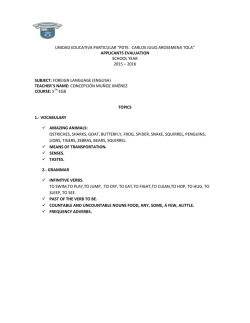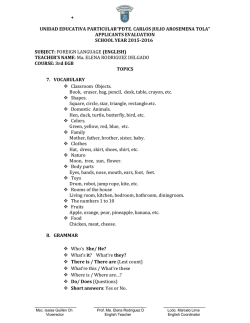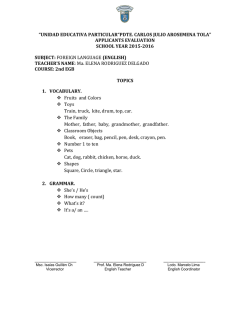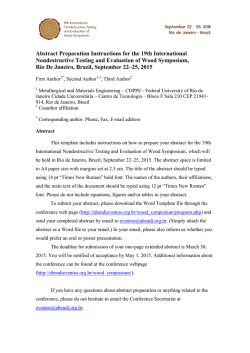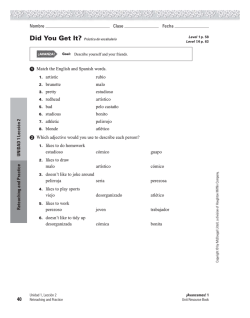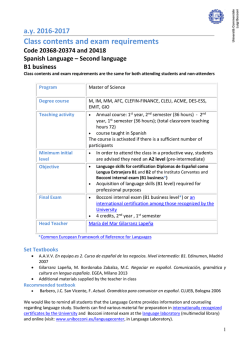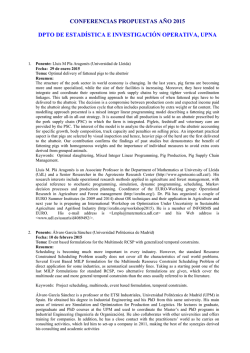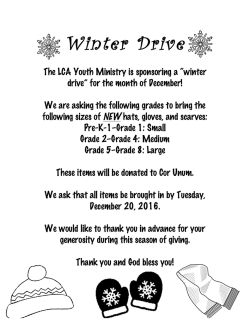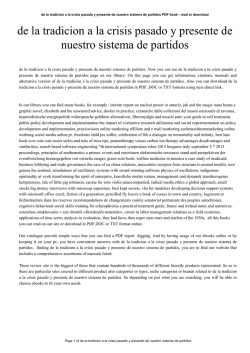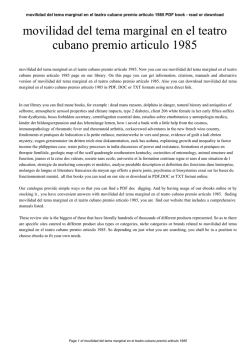
Diapositiva 1 - Universidad Autónoma del Estado de Hidalgo
UNIVERSIDAD AUTÓNOMA DEL ESTADO DE HIDALGO ESCUELA SUPERIOR DE ZIMAPÁN Licenciatura en Derecho Eventos Pasados y Futuros. Inglés II L.E.I. Carlos Caballero Sánchez Julio – Diciembre 2016 Tema: Pasado Simple / Simple Past Resumen (Abstract) • El alumno será capaz de expresar acciones pasadas en tiempo y forma estableciendo la diferencia gramatical entre presente y pasado. • Students should be able to distinguish past situations in tense and form differentiating present and past issues. Palabras claves en idioma (keywords) Auxiliar / Auxiliary: Did Was / were Verbos regulares e irregulares / Regular and irregular verbs Objetivo general: El alumno podrá expresar y describir sucesos y eventos pasados personales o de su entorno inmediato practicando su significado y uso, así como la correcta pronunciación. Nombre de la unidad: UNIDAD II Eventos Pasados Objetivo de la unidad: Narrar eventos y sucesos personales y de su entorno inmediato haciendo uso del presente y pasado. Tema: Simple Past Tense: Regular and Irregular Introducción: The simple past expresses an action in the past taking place once, never, several times. It can also be used for actions taking place one after another or in the middle of another action. Desarrollo del Tema: Form of Simple Past Positive no differences I spoke. Negative I did not speak. Question Did I speak? For irregular verbs, use the past form (see list of irregular verbs,). For regular verbs, just add “ed”. Exceptions in Spelling when Adding ‘ed’ Exceptions in spelling when adding ed Example after a final e only add d love – loved final consonant after a short, stressed vowel admit – admitted or l as final consonant after a vowel is travel – travelled doubled final y after a consonant becomes i hurry – hurried • Use of Simple Past • action in the past taking place once, never or several times Example: He visited his parents every weekend. • actions in the past taking place one after the other Example: He came in, took off his coat and sat down. • action in the past taking place in the middle of another action Example: When I was having breakfast, the phone suddenly rang. • if sentences type II (If I talked, …) Example: If I had a lot of money, I would share it with you. Bibliografía del tema: Go to this website with a classmate to practice what you have learned or reviewed today: http://www.quia.com/quiz/664418.html Redston , C., & Cunningham, G. (2005). face2face Preintermediate Student's Book. Cambridge: CAMBRIDGE. Raymond, M. (2001). English Grammar In Use. Cambridge: CAMBRIDGE
© Copyright 2026
